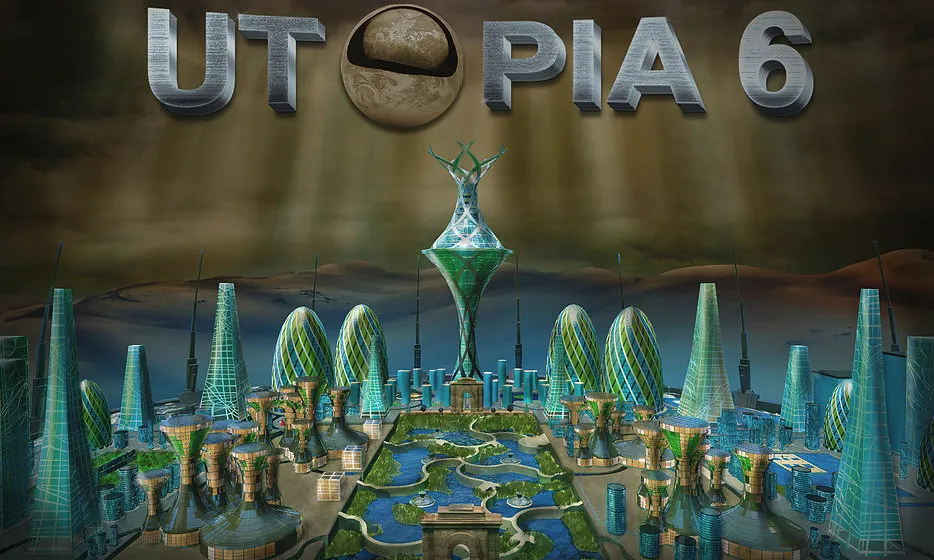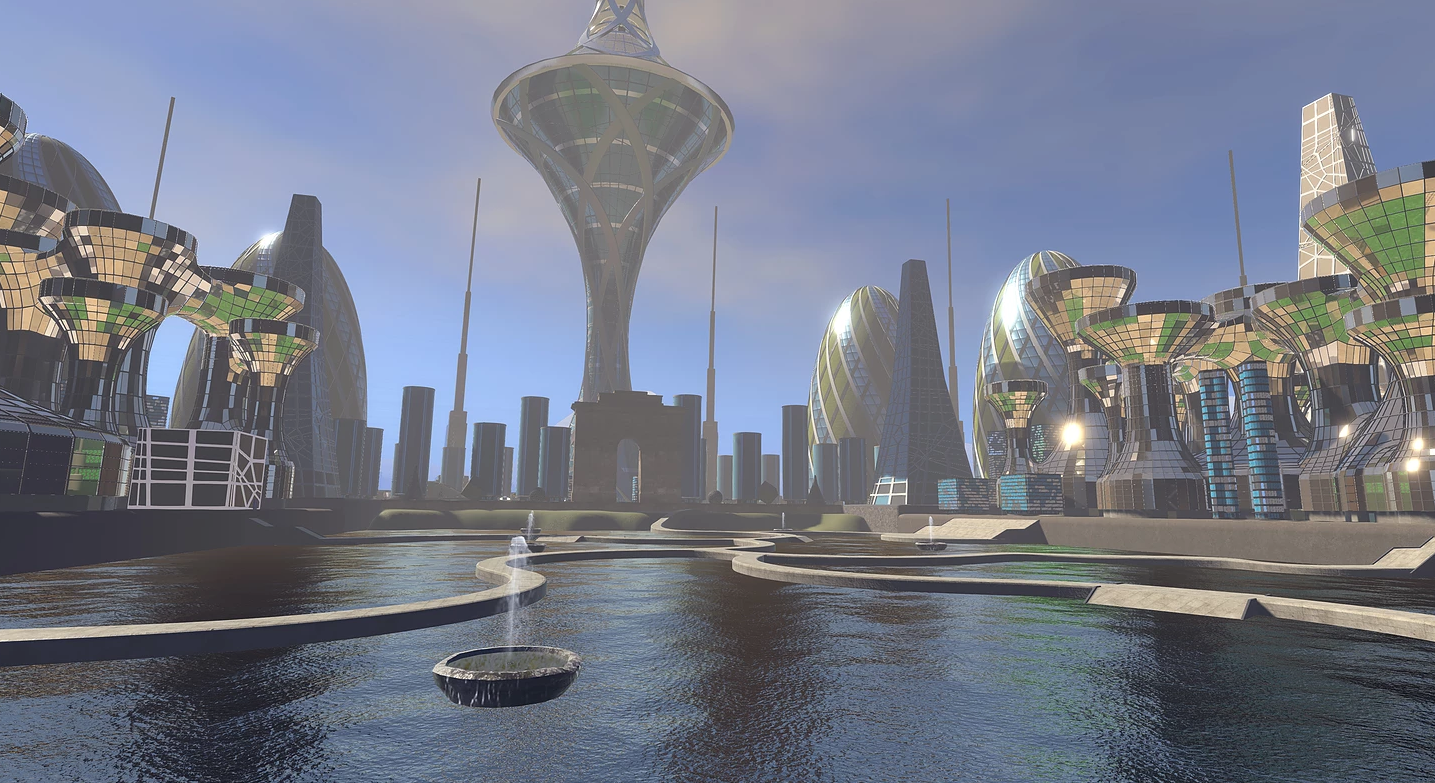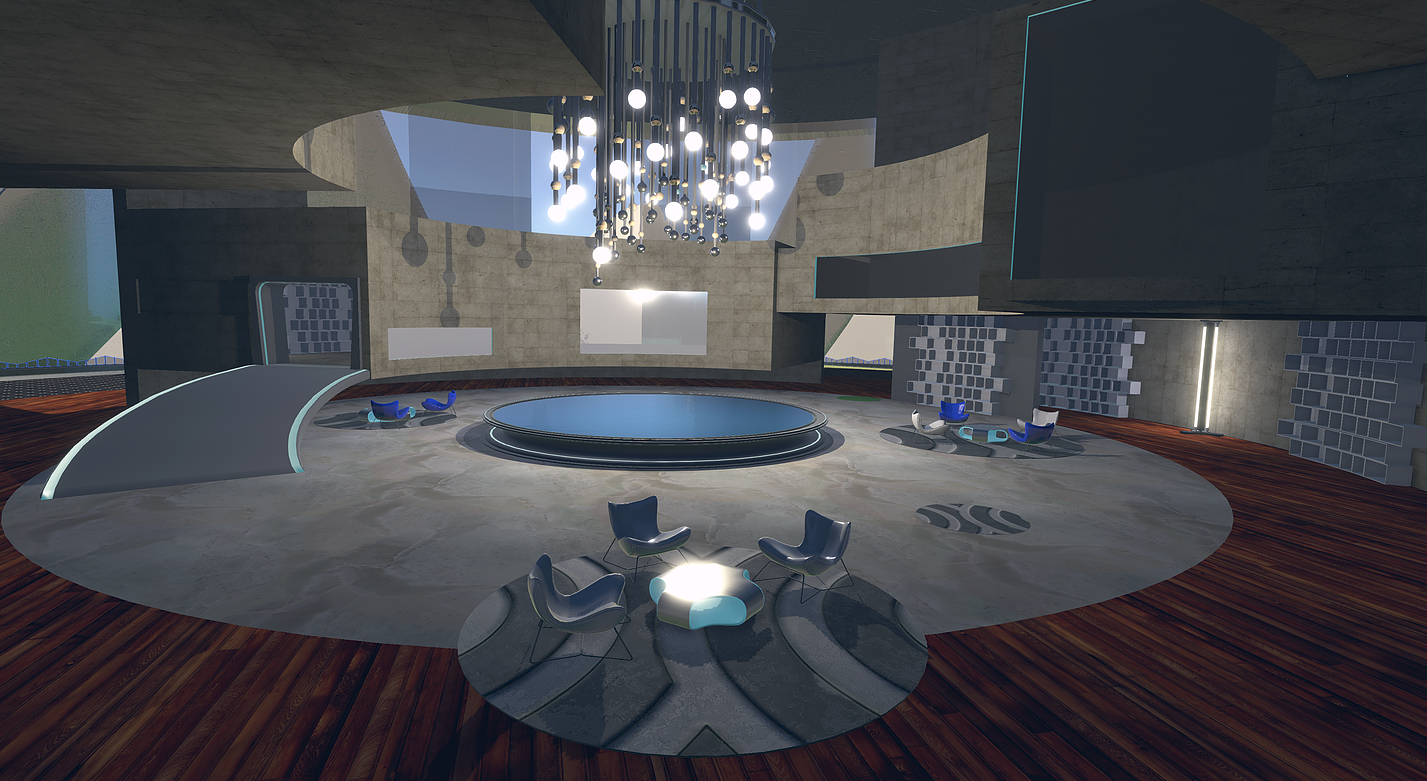Every once in a while I go back and watch Breaking Fourth’s Ctrl just to double check that it’s as good as the headline I wrote for it back in June 2016 promises. I see a lot of VR movies that fail to move past the gimmick stage, so it’s always a relief to watch something that isn’t as concerned with a sense of awe so much as it is character-driven storytelling that leaves an impact. That piece was a darkly challenging debut, the likes of which we’re finally starting to see more of from the film and theater visionaries in this industry.
Breaking Fourth’s follow-up, Utopia 6, is also a worthy entry in the immersive entertainment industry.
When I met the team in London last week they gave me the impression that this is a piece to help stretch the studio’s legs a bit; it’s been over a year since Ctrl debuted and they’re working on bigger projects that the film’s success has opened the doors to. Utopia 6, meanwhile, was pieced together in a few months as a collaboration with writer Jo Harper. It’s a little shorter, though in some ways similar to its predecessor, unfolding almost like a radio play. I found myself intrigued by its ideas, and still thinking about its implications days after viewing.
Utopia 6 explores themes of outsidership, elitism, and family. The film takes you on a virtual tour of its developing titular city, a fictional labyrinth of exquisite buildings and parks, serving as an impossible oasis in the middle of a war-torn world. But not just any wanderer can stumble into this haven; citizenship is only allocated to the elite, with a few charitable exceptions. One such exception is Bea, a graduate of a Refugee Apprenticeship scheme that works closely with the Utopia Life Corporation’s CEO, Anna. They’ll guide you through the city, though it soon becomes clear that neither of them survived the emotional trauma of the apocalypse unscathed.
Utopia 6 itself is all just a little too neat — a kind of bland paradise. As you’re taken along its streets you’ll be pointed toward idyllic new features such as self-cleaning parks and picturesque apartment spaces. It’s the kind of place you might dream of living in (and, oddly, it reminded me of London’s Olympic Village), but it all comes at deep personal cost.
No matter how perfect the setting, you can’t escape the surrounding tragedy of Utopia 6’s ravaged planet. It’s a somewhat ignorant and insensitive construction that expects its citizens to simply forget about their past lives when they enter its grounds. But through Bea and Anne I was reminded how the past can catch up to us in dangerous ways as well as the importance of properly processing trauma. Like Ctrl before it, we slowly begin to peer into the cracks in our character’s lives despite how they try to present themselves, and the mounting sense of pressure to beg and plead for identity is something I could relate to. If you’ve ever wanted to belong to something or someone, then I think you’ll relate too.
There’s this curious awkwardness to Utopia 6. You don’t see the characters that join you, instead just hearing their voices overhead. In some ways I felt like an intruder, eavesdropping in on the lives of people that have been through great personal turmoil and can’t help but like it show. It’s the same sense you get when you enter VR and hear people in the outside world talk over your head. But that silent spectator, in turn, gives you room to build a picture of what’s really going on here.
The result is an interesting piece that gives you a little food for thought. Breaking Fourth tells me that one user removed the Gear VR headset and proclaimed the team had perfectly captured the world as it is today. I don’t think that’s quite the case (and I don’t think the team does either), but it’s not hard to think of the elements of our current society that could lead us down that path.
If you’re in Edinburgh over the next few weeks then try and check Utopia 6 out at the Future Play Festival. Otherwise, keep an eye out for a wider release.
































